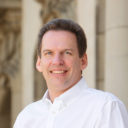Will Science Become “Useless”?
“But therein, in my opinion, lies the intellectual bankruptcy of much of theology and some of modern philosophy.”
—Lawrence Krauss, A Universe from Nothing, xiv
In his book A Universe from Nothing, Lawrence Krauss makes no bones about his belief that science provides great contributions to our fundamental knowledge. By contrast, he views input from theology (and philosophy to some extent) as largely useless. Similarly, Stephen Hawking declares, “philosophy is dead,” in The Grand Design.1 Other scientists have publicly echoed these sentiments and probably many more do so privately. Will people view science as useless someday?
Science Has Developed Recently
Historians find capable scientists and traces of scientific thought a long way back in time. However, the modern scientific enterprise largely dates back no earlier than the seventeenth century. Galileo Galilei made his first telescope in 1609. Robert Boyle distinguished chemistry from alchemy in 1661. Isaac Newton put physics on the map with the publication of the Principia Mathematica in 1687.
Theology Has Existed for Two Millennia
Christian theology, on the other hand, dates to the first century. Science has been around a few centuries, Christian theology a couple of millennia!2 Judaism goes back even farther into human history. Archaeologists find evidence of religious practices in the remains of every human civilization. Basically, for as long as humans have existed, so too has theology. For my purposes, I’ll be focusing on Christianity.
During the first 500 years or so after Jesus Christ’s life on Earth, Christians debated, argued, and codified the basic beliefs about God, Jesus, sin, death, redemption, eternal life, and the Bible. Christians today largely take these works (both canonized Scripture and the creeds and catechisms that amplify the words of Scripture) as definitive statements about what they should believe. Another 1,500 years of scholarship accompanies our present understanding of these basic beliefs. Many ideas and interpretations have been (and continue to be) put forth, tested, and deemed wrong. Theologians know of many heretical ideas about God—ideas so wrong that they undermine a coherent, truthful picture of God and how we relate to him.
Testing Is Biblical
It might surprise some that Christianity encourages testing to discern the truth. In Acts 17:11, author Luke describes the Bereans, a group of new converts who received the gospel “with great eagerness and examined the Scriptures every day to see if what Paul said was true” (emphasis added). For this, the Bereans are commended as being “of more noble character.” In 1 Thessalonians 5:20–22, Paul commands the Christians in Thessalonica, “Do not treat prophecies with contempt but test them all; hold on to what is good, reject every kind of evil” (emphasis added).
So, over the last two millennia, theologians have developed an expansive, coherent, explanatory body of knowledge describing what Christians believe and how those beliefs affect how they live. Although today’s theologians continue to fill in important details and raise new questions, a great deal of Christian theology was settled within 500 years of Jesus’s earthly ministry.
Science Has Many Questions to Answer
Meanwhile, scientists are still in their first 500 years. That raises the question of what several more centuries of research might contribute. In another 1,500 years, might science look much like theology does today?
Considering the energy involved in testing grand unified theories and any proposed theory of everything, it’s conceivable that scientists may never achieve the experimental verification of a unified theory. Some scientists take a rather sour view of the progress over the last few decades on this matter. Neil Turok, director of the Perimeter Institute for Theoretical Physics made this provocative assessment:
“All of the theoretical work that’s been done since the 1970s has not produced a single successful prediction . . . [Physicists] write a lot of papers, build a lot of [theoretical] models, hold a lot of conferences, cite each other—you have all the trappings of science,” he says. “But for me, physics is all about making successful predictions. And that’s been lacking.”3
Turok specifically notes that the Large Hadron Collider (LHC) produced data showing that the Higgs boson exists (based on theoretical work before 1970) but none that would affirm or invalidate supersymmetry (theoretical work since 1970). Given the lack of data, some scientists have argued that perhaps beauty and elegance have effectively replaced experimental verification for advancing models.4 I take a more optimistic attitude and think that the tremendous scientific gains of the last few centuries will continue into the future. Perhaps experiments over the next 100 years will reveal a theory of everything. At that point, science won’t simply stop. Rather, many details will emerge and new questions will arise.
With all the advances, the amount of data available will grow exponentially. Scientists of the past could make contributions in multiple disciplines, but scientists today must specialize. As advances increase, so too will specialization. Even now, much of science education is taught by decree—because the basic science is already settled. Further specialization will exacerbate this issue.
What Does the Future Hold?
It is not hard to envision a day in the not too distant future when most people appreciate the results of past scientific work but see it as a somewhat esoteric discipline that provides little use for daily living. And it would happen for the same reason that people such as Krauss and Hawking view Christianity similarly—that is, irrelevancy—today. Christianity has been so successful in addressing the big questions—and perhaps science will be too—that people can enjoy the fruits without understanding the roots.
Endnotes
- Stephen Hawking and Leonard Mlodinow, The Grand Design (New York: Bantam Books, 2010), 5.
- Putting a definitive date on the start of either theology or science (or philosophy) is a difficult task. My point here is to simply illustrate that the bulk of scientific advance has occurred since 1700 and that Christian theology started at the time of Christ.
- Dan Falk, “Why Some Scientists Say Physics Has Gone off the Rails,” NBC News, (June 22, 2018), https://www.nbcnews.com/mach/science/why-some-scientists-say-physics-has-gone-rails-ncna879346.
- For one account of this phenomenon, see Sabine Hossenfelder, Lost in Math (New York: Basic Books, 2018).






